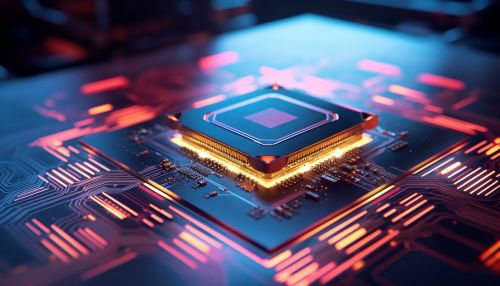Advances in Silicon-Based Quantum Computing
Introduction
Quantum computing is a rapidly evolving field of technology that leverages the principles of quantum mechanics to process information. One of the most promising and extensively researched materials for the construction of quantum computers is silicon. Silicon-based quantum computing has seen significant advances in recent years, pushing the boundaries of computational power and efficiency. This article delves into the intricacies of these advancements, exploring the underlying principles, key developments, and potential future directions of silicon-based quantum computing.


Principles of Quantum Computing
Quantum computing operates on the principles of quantum mechanics, a branch of physics that describes the behavior of particles at the quantum level. Unlike classical computing, which uses bits as the smallest unit of data, quantum computing uses quantum bits, or qubits. Qubits can exist in a state of superposition, meaning they can be in multiple states at once, and can also exhibit quantum entanglement, a phenomenon where the state of one qubit is intrinsically linked to the state of another, regardless of the distance between them.
Silicon in Quantum Computing
Silicon, a widely used material in the semiconductor industry, has emerged as a promising candidate for quantum computing due to its well-understood properties and the mature fabrication techniques available. Silicon-based quantum computers utilize the quantum properties of electrons or the atomic nucleus of a silicon atom to represent qubits.
Silicon Qubits
There are two main types of silicon qubits: electron spin qubits and silicon quantum dot qubits. Electron spin qubits leverage the spin of an electron in a silicon atom to represent a qubit. On the other hand, silicon quantum dot qubits use the charge state of an electron in a quantum dot, a nanoscale semiconductor particle, to represent a qubit.
Advances in Silicon-Based Quantum Computing
Over the past decade, there have been several key advances in silicon-based quantum computing, pushing the field closer to the realization of a practical, scalable quantum computer.
Improved Qubit Coherence Times
One of the major challenges in quantum computing is maintaining qubit coherence, the state in which a qubit can be manipulated to perform computations. Recent advances have led to significantly improved qubit coherence times in silicon-based quantum computers. This has been achieved through the use of isotopically purified silicon and advanced fabrication techniques.
Scalable Quantum Processor Architectures
Another significant advance in silicon-based quantum computing is the development of scalable quantum processor architectures. These architectures are designed to accommodate a large number of qubits, a requirement for performing complex computations. They also incorporate error correction techniques to mitigate the effects of qubit decoherence and other sources of error.
Advanced Quantum Algorithms
The development of advanced quantum algorithms tailored for silicon-based quantum computers has also been a major advance. These algorithms are designed to leverage the unique properties of silicon qubits, enabling more efficient computations.
Future Directions
The field of silicon-based quantum computing continues to evolve rapidly, with ongoing research focused on addressing the remaining challenges and further improving the performance of silicon quantum computers. Some of the key areas of focus include improving qubit coherence times, developing more efficient quantum error correction techniques, and designing scalable quantum processor architectures.
